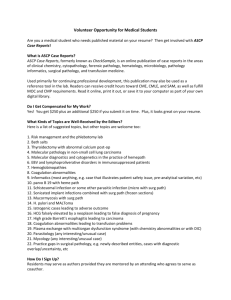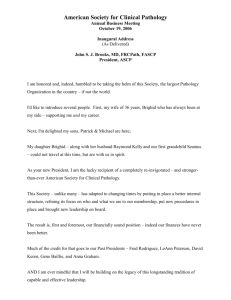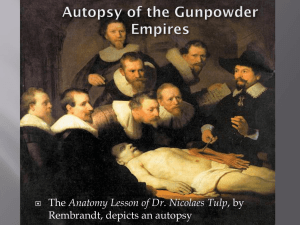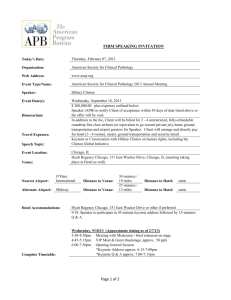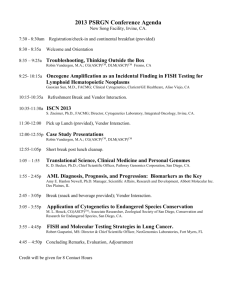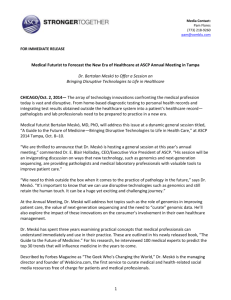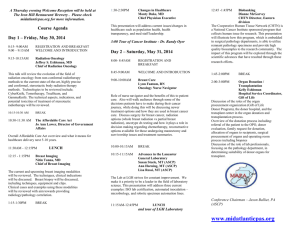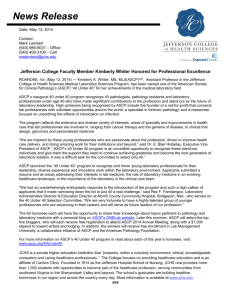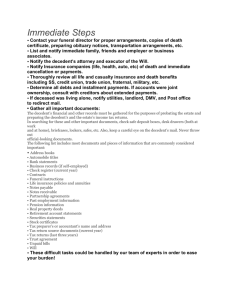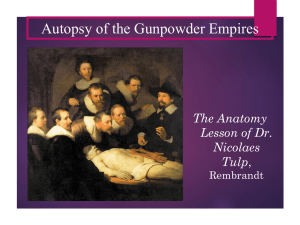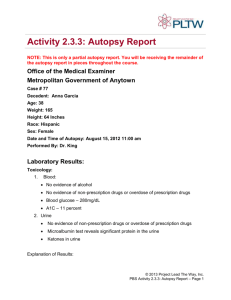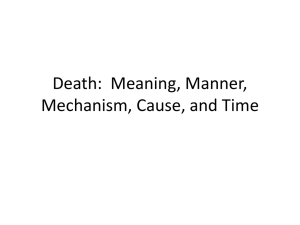February 14, 2012 Senator Jerome Delvin Washington State Senate
advertisement
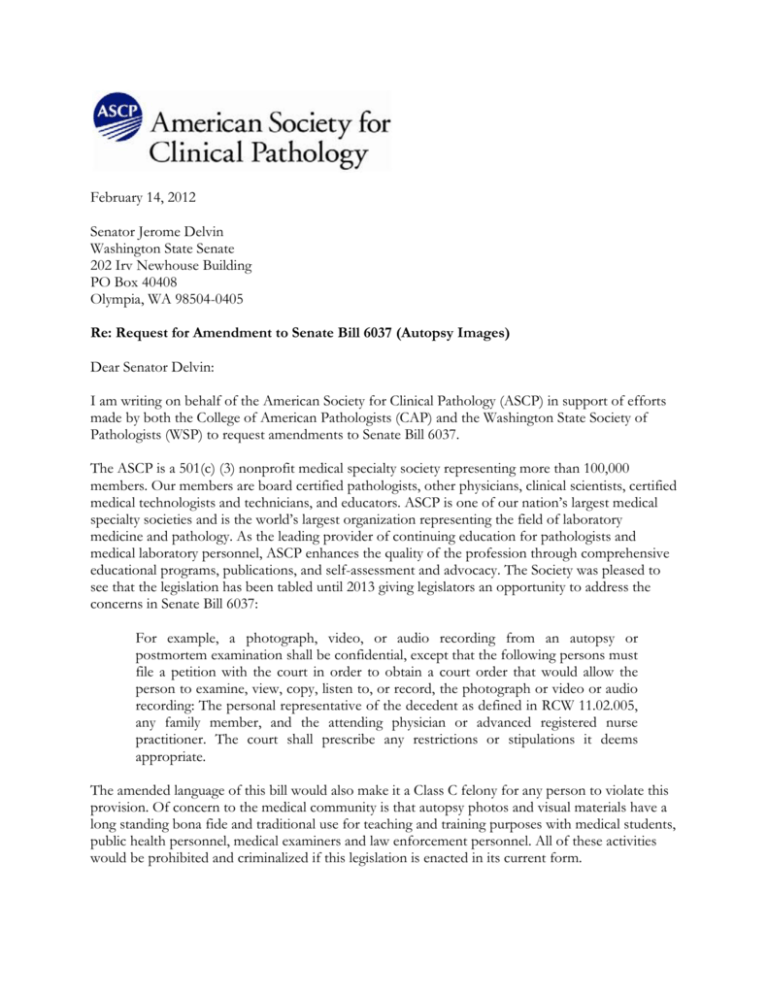
February 14, 2012 Senator Jerome Delvin Washington State Senate 202 Irv Newhouse Building PO Box 40408 Olympia, WA 98504-0405 Re: Request for Amendment to Senate Bill 6037 (Autopsy Images) Dear Senator Delvin: I am writing on behalf of the American Society for Clinical Pathology (ASCP) in support of efforts made by both the College of American Pathologists (CAP) and the Washington State Society of Pathologists (WSP) to request amendments to Senate Bill 6037. The ASCP is a 501(c) (3) nonprofit medical specialty society representing more than 100,000 members. Our members are board certified pathologists, other physicians, clinical scientists, certified medical technologists and technicians, and educators. ASCP is one of our nation’s largest medical specialty societies and is the world’s largest organization representing the field of laboratory medicine and pathology. As the leading provider of continuing education for pathologists and medical laboratory personnel, ASCP enhances the quality of the profession through comprehensive educational programs, publications, and self-assessment and advocacy. The Society was pleased to see that the legislation has been tabled until 2013 giving legislators an opportunity to address the concerns in Senate Bill 6037: For example, a photograph, video, or audio recording from an autopsy or postmortem examination shall be confidential, except that the following persons must file a petition with the court in order to obtain a court order that would allow the person to examine, view, copy, listen to, or record, the photograph or video or audio recording: The personal representative of the decedent as defined in RCW 11.02.005, any family member, and the attending physician or advanced registered nurse practitioner. The court shall prescribe any restrictions or stipulations it deems appropriate. The amended language of this bill would also make it a Class C felony for any person to violate this provision. Of concern to the medical community is that autopsy photos and visual materials have a long standing bona fide and traditional use for teaching and training purposes with medical students, public health personnel, medical examiners and law enforcement personnel. All of these activities would be prohibited and criminalized if this legislation is enacted in its current form. Please recognize that all of these teaching and training activities have a societal and scientific benefit that should not be prohibited to the extent contemplated under this language. The effect of the prohibition set forth in this legislation will impair medical teaching, public health education, and the training of forensic science personnel. In listening to the hearing on this bill, it was evident that many members of the Committee, including the Chair, understood the need to preserve legitimate scientific, medical and law enforcement uses of this material; however, inexplicably, no language was included in the Committee amendment to preserve and protect the use of these materials for these important purposes. In order to protect the privacy of the decedent and the decedent’s family, while allowing for continued use of these materials for teaching and training, we strongly urge adoption of the following amendment: Sec 2. (1) Notwithstanding the prohibitions of Section 1, a medical examiner, coroner, or physician in lawful possession of an autopsy photograph, or other visual image in whatever form, including video, or audio recording, may, after expunging and redacting all information identifying the decedent, including name, address, and Social Security number, and after rendering facial identity anonymous, use such material for: (i) medical or scientific teaching or training purposes; (ii) teaching or training of law enforcement personnel; (iii) teaching or training of attorneys or others with a bona fide professional need to use or understand forensic science; (iv) conferring with medical or scientific experts in the field of forensic science; (v) publication in a scientific or medical journal or textbook. (2) A medical examiner, coroner or physician who has in good faith complied with this provision shall not be subject to any penalty under this section. The legislative language being proposed herein has been substantively included in multiple state laws (See: California Cal. C.C.P. § 129; Indiana IC 36-2-14-10; Michigan M.C.L.A. 333.2855a; North Carolina N.C.G.S.A. § 130A-389.1; North Dakota NDCC, 44-04-18.18; South Carolina Code 1976 § 17-5-535; Tennessee T. C. A. § 38-7-119.) that otherwise prohibit the use or release of autopsy image materials so as to protect the privacy of decedent while continuing to allow the use of such materials for societal benefit. ASCP, along with the other pathology organizations, believes that the laws in other states, with this language, have effectively regulated these materials while ensuring their contained use for necessary medical, public health and legal purposes. We strongly urge that this language be included in any prohibition on use of these materials enacted in Washington State. Thank you for your consideration of this request. Sincerely, C. Bruce Alexander, MD, FASCP President, American Society for Clinical Pathology (ASCP)
